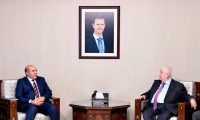
La doble tragedia de Libia
La situación de Libia, un país rico en petróleo y segmentado tribalmente, se asemeja a la de otros países devastados por la guerra en el Gran Oriente Medio, entre ellos Afganistán, Siria y Yemen. En cada caso, una combinación de luchas internas y de intervención externa desacertada ha sostenido un conflicto que viene de largo.
Al recordar las invasiones lideradas por Estados Unidos de Afganistán (2001) e Irak (2003) en su memoria de 2014 Duty, el ex secretario de Defensa Robert Gates sostenía que Estados Unidos era bueno a la hora de derrocar un régimen, pero que no tenía ni idea de lo que debería ocupar su lugar.… Seguir leyendo »













